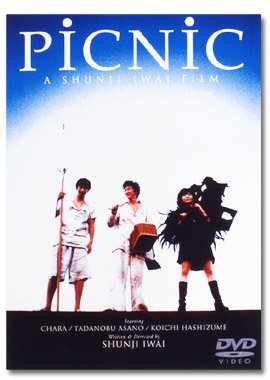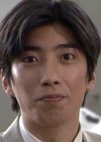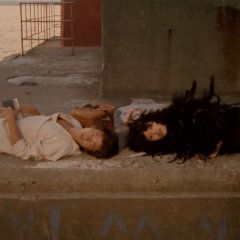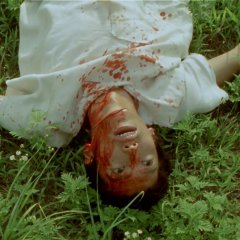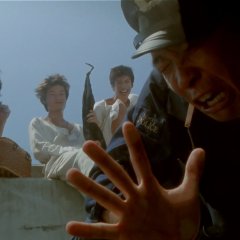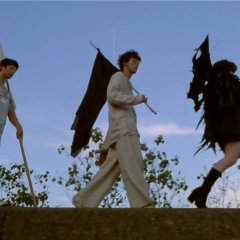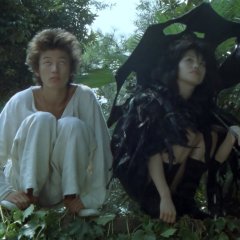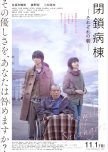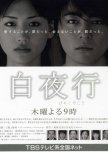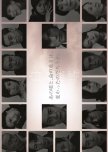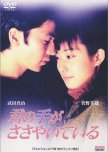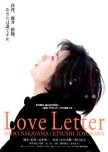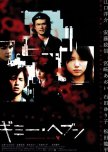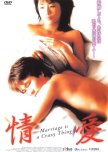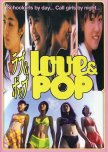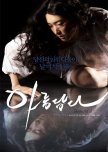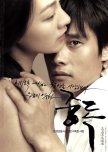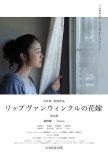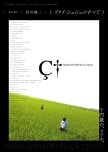- Português (Brasil)
- English
- magyar / magyar nyelv
- dansk
- Título original: ピクニック
- Também conhecido como: Pikunikku
- Roteirista e Diretor: Iwai Shunji
- Gêneros: Psicológico, Drama, Fantasia
Elenco e Créditos
- Asano Tadanobu Papel Principal
- Watabiki MiwaCocoPapel Principal
- Hashizume KoichiSatoruPapel Secundário
- Suzuki Keiichi[Pastor]Papel Secundário
- Yamaguchi Shifumi[Coco's Mother]Papel Secundário
- Musaka Naomasa[Head nurse]Papel Secundário
Resenhas

Iwai's portrayal of mental illness is not wishy-washy nor is it romanticized. Instead, he gives us something real. These characters speak with the desire to be understood. Often, their words carry more than one meaning -- one that many misunderstand. When Satoru says, "Save me" while being strangled by blankets left to dry, he meant 1) literally save me 2) save me from this world and from myself. These little details are so nice and appreciated.
Picnic is a simple tale. With just an hour running time, Iwai embraces the cinematography with such beautiful visuals and light soundtrack, it tugs at your heartstrings. Despite being confined to wall within the walls, you feel like you are also exploring the world with the three main characters. Their stories are disturbing but that's precisely what makes it feel real. Carrying a picnic basket while watching the end of the world is such a simple act, it makes the "end of the world" feel as if it's just an every day thing.
While the theme of religion play here, I don't think Iwai is preaching. Instead, he gives the message that our life is dictated by us as much as we believe in God or not.
The final scene, black feathers contrast with the pink/yellow sun as it's about to set is so beautiful I will remember it forever.
Esta resenha foi útil para você?

Esta resenha pode conter spoilers
The madness that has a symbolism behind it
"Picnic" is about 3 patients in a mental health clinic where they believe the world will end, so they go on a journey until the day of the "end of the world".-Spoilers for the film ahead-
The first few minutes of the film are pure madness, you don't understand what's going on, you see a girl being taken to a strange place, a guy having hallucinations with a puppet and another jerking off (??), at a certain point you feel confused, hallucinating about everything. Shunji Iwai works a lot on the madness of all the characters, especially Coco who is the very definition of "faith in crazy people".
We meet Tsumuji, a young man who has hallucinations with a puppet that keeps pissing wherever he goes... (yes, it's crazy), at a certain point Tsumuji and Coco end up finding themselves on the fence, along with Satoru.
Tsumuji and Satoru wear the white clothes from the clinic, while Coco dyes her white dress black, which in my interpretation can deduce that she is the most "rebellious" among the 3 young people, the one who disrespects the rules the most. Them sitting on the fence can mean the freedom they have, on the fence, they are free, if they fall at some point, they can lose their freedom. That's why Tsumuji didn't want to climb down the wall when Pastor asked him to. Because, he thought he would lose his freedom. "Climbing the wall" Satoru falls off the wall, what happens when he dies is so beautiful that you don't understand, he fell off the wall. Satoru lost his freedom, and ended up dying. "I killed someone" Two identical young people who killed someone in their past, this is basically the sin they committed in the past. A sin that remains with them to this day. Coco is condemned to hell, since she doesn't believe in God, in this case, Tsumuji's God.
"Hell is hot, isn't it?"
This scene is so beautiful, the movie is almost over and we are happy that they (Coco and Tsumuji) have finally achieved their freedom. But, it all ends in a gunshot. Coco frees herself from Tsumuji's sin by committing suicide.
Satoru lost his freedom after falling off the wall
Coco lost her life to free herself from her partner's sins
Tsumuji lost Coco to finally be free
"I will free you from your sins"
-Final Thoughts-
Okay, I don't know what to say about all this, this was my first Shunji Iwai movie, and I simply loved it. What I liked most about this film was the beautiful photography, it has an aesthetic that I find beautiful and that brings a melancholy behind everything. A symbolism behind it. When Coco dies, you see this happening and you simply admire her death while the beautiful photography is there...
The acting is good, I think the boys don't bring as much emotion as the actress who plays Coco (Chara), but it doesn't change the fact that the acting is still good.
The soundtrack is simply beautiful, especially when Satoru dies, the singing behind the children, the piano playing in the background. Simply beautiful.
Maybe I didn't get everything the film wanted to convey, but I'll definitely watch this film again at some point.
Esta resenha foi útil para você?

